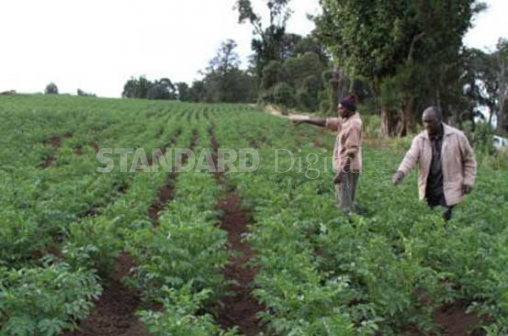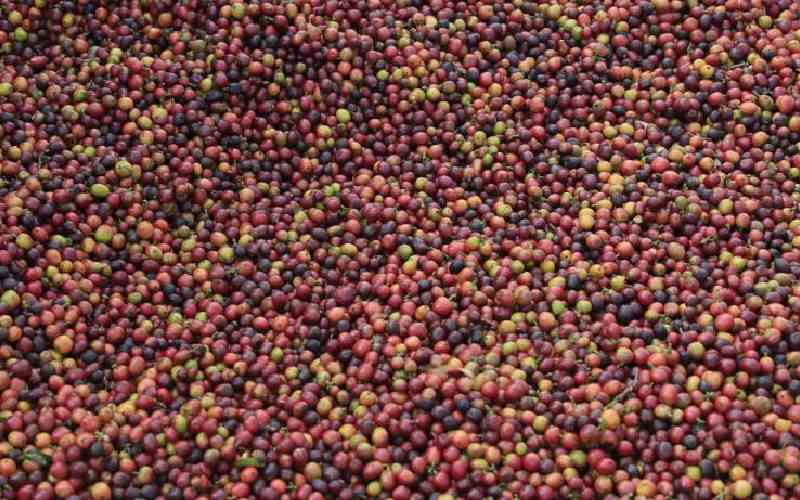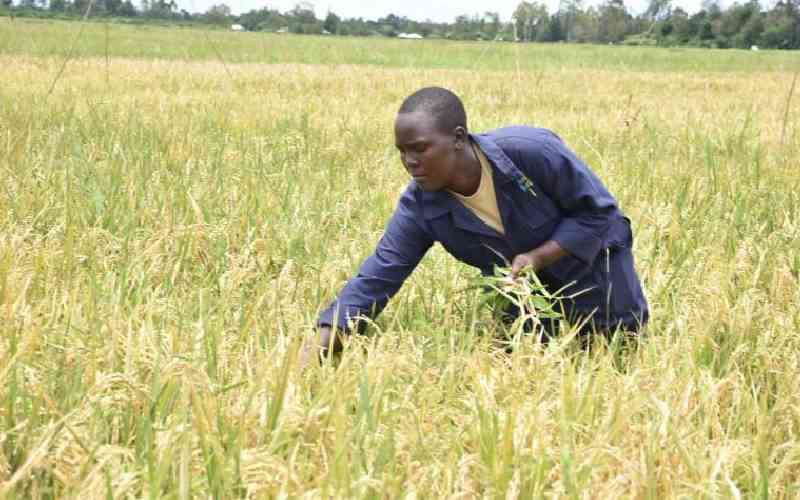
Potato farmers have been urged to embrace new seed variety, which has proved highly productive.
Besides the commonly known Shangi variety, a number of farmers in the North Rift have opted for markies, a variety not susceptible to diseases and good breed for use on chips and crisps.
The Agrico Journal, a company based in United Kingdom and which deals with potato seeds, says the markies variety is highly sought after due to its floury cooking texture and excellent dry matter content.
Agrico East Africa Managing Director Willem Dolleman says markies variety is capable of absorbing less oil when fried for both chips and crisps and has low sugar content.
In terms of diseases, the breed easily identified by its big tubers and oval uniform shape, is resistant to leaf roll virus, tuber blight and dry rot that have been a challenge to many potato farmers.
Apart from Markies, the company currently has varieties such as Ambition, Arizona, Arnova, Destiny, Faluka, Manitou, Rudolph, Saviola and Toluca, which have a huge demand in major East African countries.
“The local seeds have been known to yield from five to seven tonnes per hectar. Our new varieties, which we have been importing from the Netherlands, have made it possible to increase the rate eight times,” he said.
For better yields, Dollerman says farmers should make use of certified seeds to achieve significant improvement of crops.
“It is also advisable to ensureconsistent crop rotation like planting potatoes on the same field once every four months to prevent diseases such as bacterial wilt,” he added.
According to Allan Rono, an agro analyst focused on potato varieties, farmers ought to give priority to important rules when seeking to achieve high productivity.
Rono says potatoes have a capability of doing well in any given area if good husbandry is given priority.
“This involves ensuring proper tillage, use of adequate and correct fertiliser and proper storage upon harvesting,” he said.
Rono says a number of farmers have failed in interfacing with the market even after experiencing a successful harvest of the potatoes, a move he said is likely to make one incur huge losses.
“it is ideal that when thinking on what to plant, one should conduct extensive research in order to find out what kind of variety appeals to the market because there is a tendency of one using lots of resources on a produce to achieve quality and good size but fail to find market,” he says.
Stay informed. Subscribe to our newsletter
 The Standard Group Plc is a
multi-media organization with investments in media platforms spanning newspaper
print operations, television, radio broadcasting, digital and online services. The
Standard Group is recognized as a leading multi-media house in Kenya with a key
influence in matters of national and international interest.
The Standard Group Plc is a
multi-media organization with investments in media platforms spanning newspaper
print operations, television, radio broadcasting, digital and online services. The
Standard Group is recognized as a leading multi-media house in Kenya with a key
influence in matters of national and international interest.
 The Standard Group Plc is a
multi-media organization with investments in media platforms spanning newspaper
print operations, television, radio broadcasting, digital and online services. The
Standard Group is recognized as a leading multi-media house in Kenya with a key
influence in matters of national and international interest.
The Standard Group Plc is a
multi-media organization with investments in media platforms spanning newspaper
print operations, television, radio broadcasting, digital and online services. The
Standard Group is recognized as a leading multi-media house in Kenya with a key
influence in matters of national and international interest.









